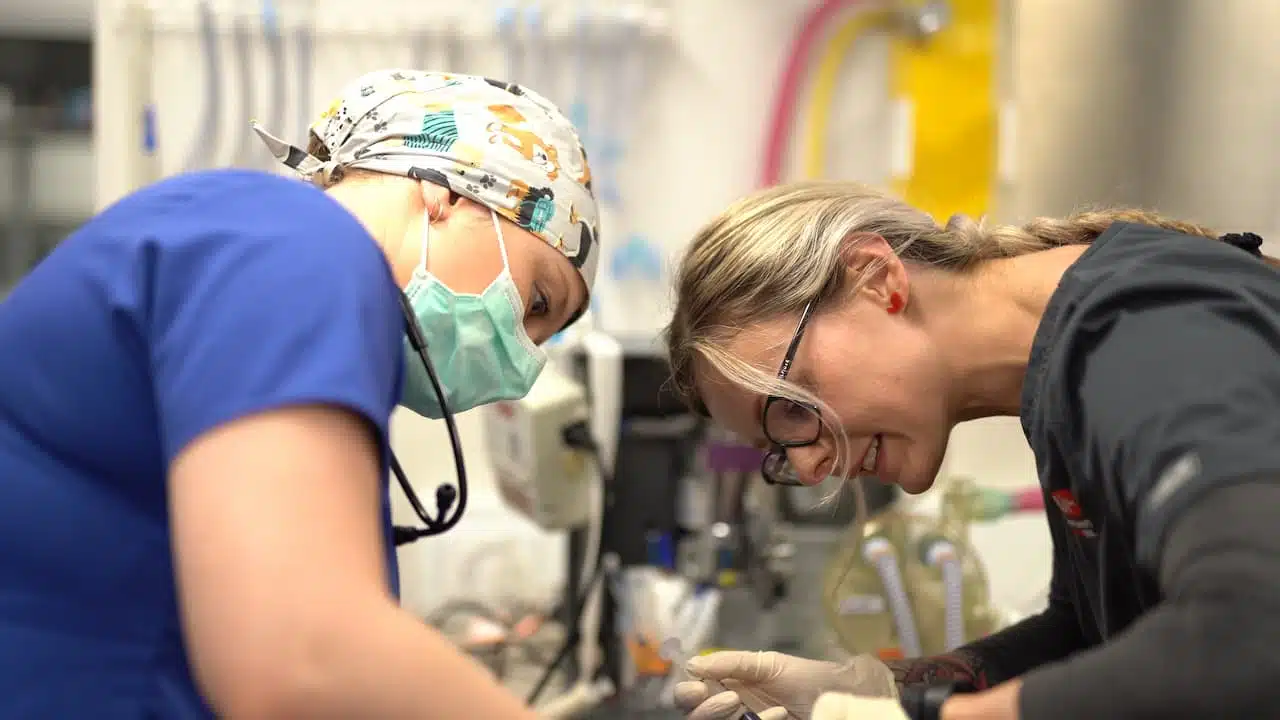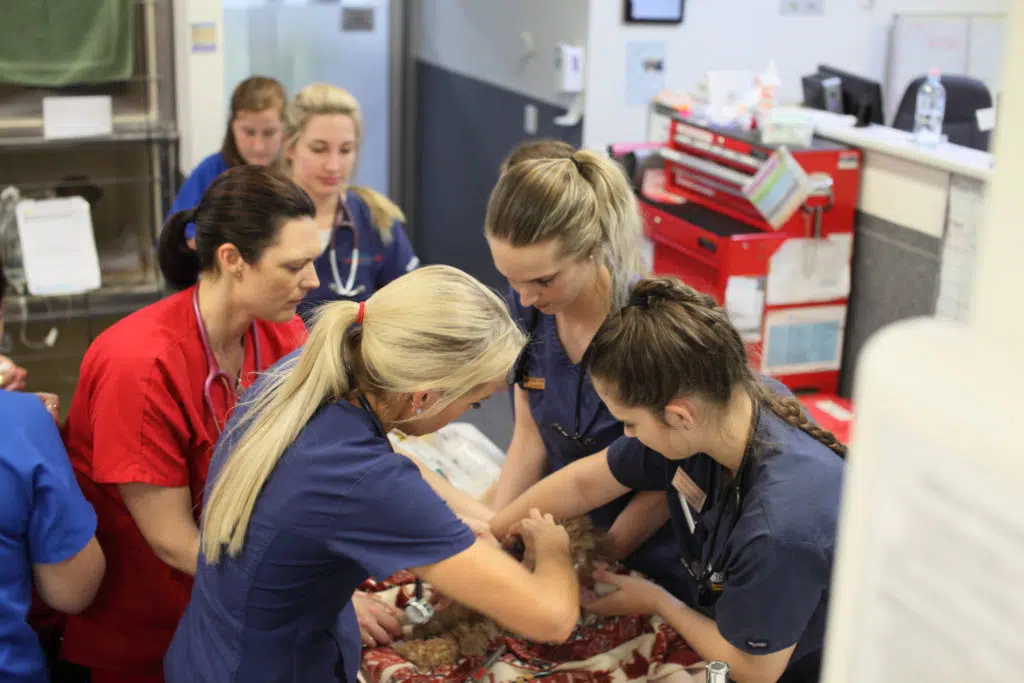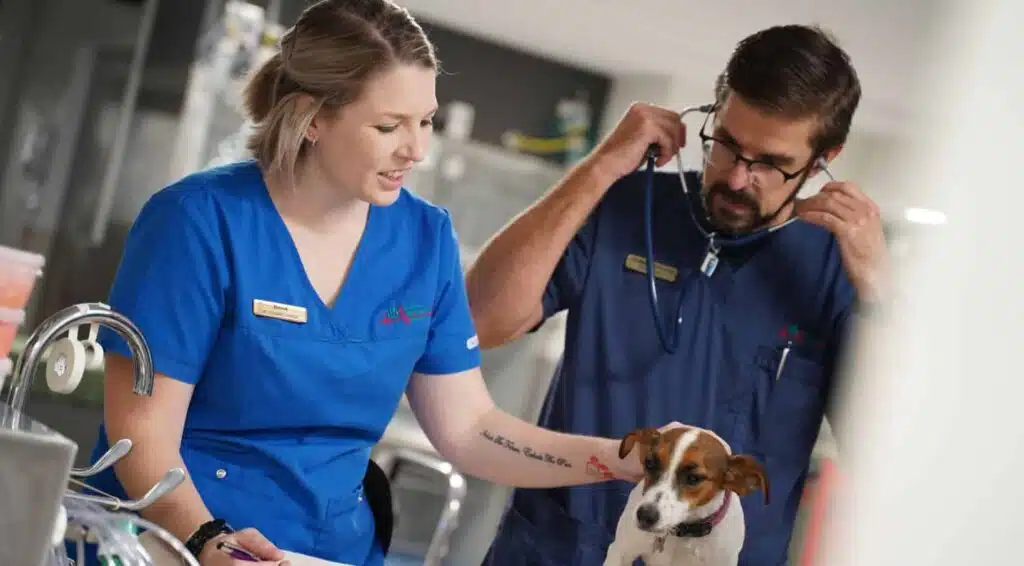Whether you’re in vet school, your final year of university, or have ventured out into the veterinary workforce, there’s one thing most vets crave: mentorship. During university, there’s an emphasis on finding the right practice with the right boss – someone who is supportive, encouraging, and shares their knowledge to help you build your skills. In essence, you’re told to go out and find a job with a good veterinary mentor. But that’s easier said than done.
Here is the tricky part: you can’t expect any person to be the perfect mentor, and for them to teach and train you exactly in what you want and need. This idealistic expectation of finding a perfect veterinary mentor comes with three main challenges:
- It’s unrealistic – you can’t expect one mentor to be everything for you
- It’s uncommunicated – you haven’t told them that is what you are expecting, so how can they possibly fulfil this?
- It’s unachievable – ultimately, without knowing what’s expected, your mentor will likely not be able to fulfil a perfect role and will likely fail.
So what can you do to overcome these challenges and still find the most suitable mentor for you? Well, the first thing you need to understand is that despite the fact that undoubtedly you and your mentor will learn and benefit from the experience, it is that you as the mentee will need to do the majority of the work.
So are you ready to be a mentee? Below are the three key steps that you need to consider in order to make sure you’re a properly prepared mentee.
Are you prepared to put in the effort to maintain the relationship?
The whole goal of a veterinary mentor is in guiding you and offering valuable advice. Through their help and knowledge, they are short cutting your journey to success. You are learning and benefiting from their experience and hard earned knowledge as an experienced clinician. So it’s only fair that you as the mentee must be prepared to maintain the relationship.
Your mentor should not be chasing you – it’s not their role to follow up on you. Ensure you establish an effective method of communication, with regular check-ins that are convenient for both of you. Whether this is through emails, phone calls, in-person meetings or video calls. You need to take the time and effort to make sure your relationship thrives.
Are you prepared to take action and implement?
Don’t begin a mentoring relationship expecting it to be one-sided and taking up their time by asking their advice and guidance and then not being accountable and taking action. This relationship must be both give and take – a mutually beneficial scenario.
By taking their valuable knowledge and experience, you need to give this back through showing how you’ve been able to put this into action as a dedicated mentee. Record your wins, your success stories, and how you’ve been able to put these into action, and discuss and celebrate these at any opportunity.
Are you ready for feedback and self reflection?
A good veterinary mentor will be ready to listen, ask questions, then step in to offer advice and guidance when needed. For this to be successful, you need to be ready to explain what you are thinking, your thought processes, the decisions you made, and then ready for the challenging questions and ready to receive feedback. Be open and honest, and take onboard feedback and criticism to better yourself as a vet.
Finding the right veterinary mentor can be a life changing experience. This is dependant on you being prepared to invest the time, take action, to know what outcomes you want, and to be able to articulate that to your mentor; as well as selecting the right veterinary mentor and then fostering and building the relationship.
This challenge can be overwhelming to think about at first – but as veterinarians we always strive to learn more. If you’d like to master mentorship, sign up for our mentorship series and receive useful professional tools and clinical resources to empower you to set yourself and your mentor up for success, all the while having realistic, achievable and communicated expectations.
Want to explore more about veterinary mentorship and how to travel the pathway to success? Sign up for our 3-part mentorship series below and find out how to set clear mentorship goals in our next article.
Sign-up to our Mentoring Series
You will receive a three-part mentoring series, designed to help you select and approach a mentor.




